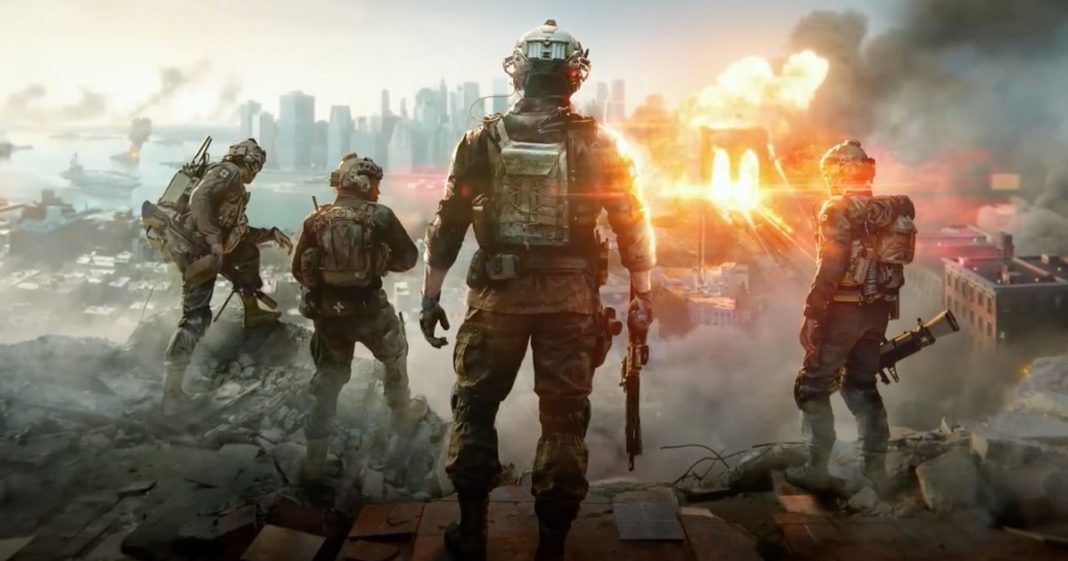Imagine a world without Call of Duty. Hard to picture, right? This titan of the gaming world, a franchise synonymous with first-person shooters, might never have existed – at least, not as we know it – if not for a pivotal moment of corporate friction. That’s the intriguing, slightly scandalous claim from Vince Zampella, the veteran game developer who co-founded Infinity Ward and is now a driving force behind Respawn Entertainment (and yes, Apex Legends). According to Zampella, Call of Duty owes its very existence to the fact that EA, the publishing giant, “were dicks.”
When Creative Differences Become Industry-Defining Moments
This isn’t just playground name-calling; it’s a peek into the tumultuous history of game development. To understand Zampella’s pointed remark, we need to rewind to the early 2000s. Before Call of Duty dominated the charts, the team that would eventually become Infinity Ward was busy crafting something else entirely: Medal of Honor: Allied Assault for Electronic Arts. This wasn’t just any WWII shooter; it was a groundbreaking title that pushed boundaries and set new standards for cinematic storytelling and intense action. The talent was undeniable, the vision was clear, and the game was a hit.
But beneath the surface, tensions were brewing. The creative minds behind Allied Assault felt constrained, stifled by EA’s corporate structure and publishing demands. They had a different vision for their next project, a bold new take on the WWII setting that challenged the conventions of the time. However, disagreements mounted, leading to a profound schism. The team, including Zampella and Jason West, ultimately decided to walk away from EA. It was a risky move, but one that would irrevocably alter the landscape of military shooters.
A Leap of Faith: The Birth of a Rival
Their departure from EA wasn’t just a career change; it was the genesis of a new studio and a legendary franchise. They founded Infinity Ward, and under the wing of Activision, they set out to create their dream game. That dream, as you might have guessed, was the original Call of Duty. Instead of focusing on a single heroic soldier like Medal of Honor often did, Call of Duty aimed to immerse players in the brutal, chaotic reality of war through the eyes of multiple soldiers across different fronts.
This was a direct challenge to EA’s own established war game franchise. Had EA managed to retain that prodigious talent, who knows what trajectory the Medal of Honor series might have taken? Perhaps Call of Duty would have been another EA-published title, or maybe it wouldn’t have emerged at all in the form we recognize. “Honestly, it’s wild to think about,” muses long-time gamer, Alex Chen. “If EA had just handled things differently back then, we might have an entirely different gaming landscape today. It really highlights how crucial developer-publisher relationships are.”
Zampella’s blunt assessment isn’t just about old grudges; it highlights a critical inflection point where corporate decisions directly sculpted the future of an entire genre. EA’s perceived missteps, according to Zampella, didn’t just lose them a talented team; they inadvertently created their fiercest rival, a rival that would eventually eclipse their own offerings in the military shooter space.
The Legacy of a Rift
The rest, as they say, is history. Call of Duty exploded in popularity, evolving from its WWII roots to modern and futuristic warfare, becoming an annual blockbuster. Meanwhile, Medal of Honor struggled to maintain its footing, eventually going dormant as its rival soared. The saga serves as a powerful reminder that while technology and creative vision are paramount in game development, so too is the delicate balance of human relationships, respect, and smart business decisions. A single, strained relationship can, it turns out, reshape an entire industry.
So, the next time you drop into a match of Call of Duty, take a moment to ponder its origin story. It’s not just about groundbreaking gameplay; it’s about a dramatic exit, a leap of faith, and a publisher’s alleged miscalculation that gifted the world its biggest shooter franchise.




